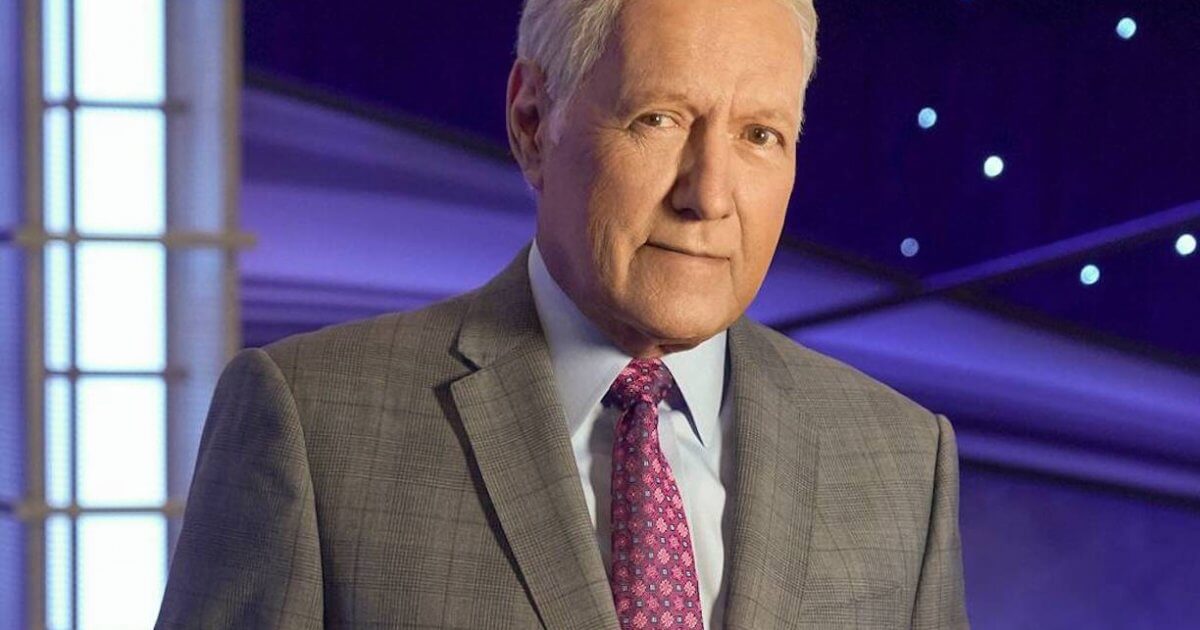Trebek's Sneaky Cameo
- Late and great Jeopardy! host Alex Trebek makes a sneaky cameo in actor Ryan Reynolds’ upcoming movie Free Guy. Reynolds described the experience of working with Trebek before his passing.
- Trebek filmed Free Guy while battling stage 4 pancreatic cancer. He passed away in November 2020.
- Experts have told SurvivorNet that mental and emotional health can be just as important as your body during cancer treatment. That’s why it’s important to continue doing things you love to stay positive.
Reynolds’ upcoming movie Free Guy, set to release August 13, follows a protagonist named "Guy" who realizes the crime-ridden world he lives in is actually a video game. In the movie, he decides to be the "good guy" in this situation and put an end to the game which leads to world-wide recognition. The film is full of celebrity appearances, but perhaps the most notable is TV icon Alex Trebek. In the movie, Trebek makes a surprising cameo and is perfectly suited for the role he was cast in which is Jeopardy! host Alex Trebek. The set of Jeopardy! appears in the movie and Trebek asks a trivia question about "Guy's" decision to fight crime.
Read MoreFilming the movie took place in 2019 while Trebek was battling stage 4 pancreatic cancer. He was diagnosed in March 2019, and regularly kept fans up to date on his health and treatment progress. Despite battling a difficult cancer, Trebek never let that get in the way of finding moments of joy. In addition to filming Free Guy, he also kept hosting Jeopardy! until his passing in November 2020.
Navigating Pancreatic Cancer
Pancreatic cancer is known as one of the most difficult types of cancers to treat, and is often caught in later stages. Some of the main symptoms associated with pancreatic cancer may include jaundice, weight gain, back pain or diabetes. However, by the time these signs start popping up, it usually means the disease has progressed to later stages. According to Dr. Anirban Maitra, 80% of diagnoses are caught in later stages since symptoms don't present themselves until the disease has already spread. Currently, the five-year survival rate of pancreatic cancer patients is just 9%.
Cancers caught in late stages typically have fewer treatment outcomes, but pancreatic cancer is especially difficult. The reason is because of the stroma a barrier around cancer cells which prevents medications, such as chemotherapy and radiation, from targeting and killing these cells. If these cells continue to grow, then the disease will continue to progress.
"Think of pancreatic cancer as an oatmeal raisin cookie and the raisins are actually the cancer cells, and the cookie part is actually all the stroma around it," Dr. Allyson Ocean, a medical oncologist at Weill Cornell Medical Center, previously told SurvivorNet. "And imagine having to navigate through all that stroma for a treatment to be able to get into a cell to kill it. So that's why the treatments just really aren't good enough to penetrate the cancer. But we're improving, we're getting better treatments."
Dr. Anirban Maitra explains why detecting pancreatic cancer early is crucial
Finding Joy During Cancer
During a cancer fight, it’s so important to find pockets of joy in order to stay positive. Studies have proven that a strong mindset and staying positive can significantly impact treatment results. That's why it's so important to have a solid support system surrounding you and taking some time out of your day to do the things you love. For some people, it may be a picnic in the park, scenic walk around the neighborhood, or watching your favorite movie. In Trebek’s case, it was hosting Jeopardy! and appearing on the big screen.
Experts have told SurvivorNet that mental and emotional health can be just as important as your body during cancer treatment. This being the case, always take some time to make yourself smile no matter how big or small the special moment may be.
“We know from good studies that emotional health and quality of life is associated with survival, meaning better quality of life is associated with better survival, better outcomes," Dr. Dana Chase, a gynecologic oncologist at Arizona Oncology, previously told SurvivorNet. "So definitely working on your emotional health, your physical well-being, your social environment, your emotional well-being and making them better are important and can impact your survival. If that's related to what activities you do that bring you joy, then you should try to do more of those activities."
Dr. Dana Chase explains why emotional health is key while fighting cancer
Learn more about SurvivorNet's rigorous medical review process.


